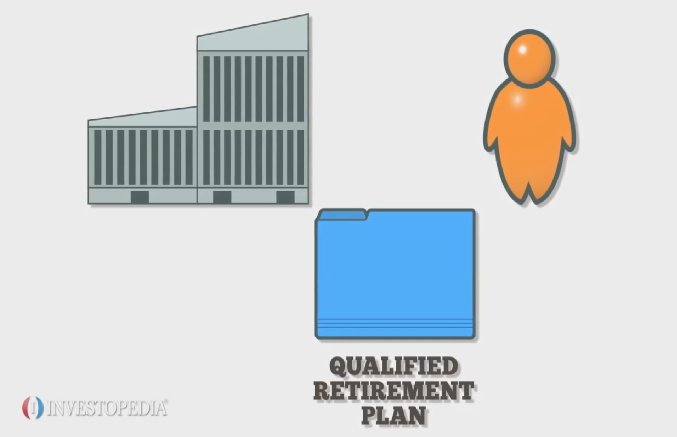Maternity leave is an exciting time for expecting mothers, but it can also bring financial challenges. How can you adequately prepare yourself financially for this phase? Don’t worry, I’ve got you covered! In this article, we’ll discuss practical strategies and smart steps to ensure you’re financially prepared for maternity leave. From creating a budget to exploring income alternatives and understanding your entitlements, we’ll guide you through the necessary steps for a smooth and stress-free transition. So, if you’ve been wondering how to prepare financially for maternity leave, keep reading for some valuable insights and actionable tips.
How to Prepare Financially for Maternity Leave
Welcome to our comprehensive guide on how to prepare financially for maternity leave. Becoming a parent is an exciting and joyful experience, but it also requires careful planning, especially when it comes to your finances. In this article, we will provide you with practical tips and strategies to help you navigate this important period in your life. From budgeting and saving to exploring government benefits and understanding your workplace policies, we’ve got you covered. Let’s dive in!
Create a Budget and Assess your Current Financial Situation
The first step in preparing for maternity leave is to create a detailed budget and assess your current financial situation. Taking a close look at your income, expenses, and savings will give you a clear understanding of where you stand and how much you need to save or adjust.
Here’s what you can do:
- List your sources of income, including your salary, bonuses, and any other additional income streams.
- Track your monthly expenses. This includes fixed expenses like rent or mortgage payments, utilities, groceries, transportation costs, and variable expenses such as entertainment and dining out.
- Identify areas where you can cut back or reduce expenses temporarily to save extra money.
- Consider the additional costs that may arise during maternity leave, such as medical bills, baby supplies, and childcare expenses.
- Calculate your existing savings and emergency fund. It’s recommended to have at least three to six months’ worth of living expenses saved up.
By creating a budget and assessing your current financial situation, you’ll have a clear picture of your financial standing and be able to make informed decisions moving forward.
Save Money in Advance
Preparing for maternity leave financially involves saving money well in advance. This will help cover your expenses while you’re away from work and provide a financial safety net during this period of transition.
Consider the following saving strategies:
- Set up a separate savings account specifically for your maternity leave funds. This will help you visually separate your savings and avoid unnecessary spending.
- Automate your savings by setting up recurring transfers from your paycheck or checking account to your maternity leave savings account. This way, you won’t forget to save and it becomes a regular habit.
- Look for ways to reduce unnecessary expenses. Cut back on dining out, entertainment, and non-essential purchases. Consider a temporary spending freeze to boost your savings.
- Explore potential avenues for additional income, such as freelance work or part-time jobs. However, make sure it doesn’t add unnecessary stress during this critical period.
Saving money in advance ensures that you have a financial cushion to rely on during your maternity leave and minimizes the stress associated with any unforeseen expenses.
Understand Your Workplace Policies
Take the time to thoroughly understand your workplace policies regarding maternity leave, benefits, and options available to you. Each employer may have different policies, so it’s important to familiarize yourself with your specific situation.
Here are some key aspects to consider:
- Review your employee handbook or speak with your human resources department to understand your rights and entitlements during maternity leave.
- Find out how much paid maternity leave your employer offers, if any, and if there are any conditions or requirements to qualify for it.
- Check if you are eligible for short-term disability benefits or unpaid leave under the Family and Medical Leave Act (FMLA).
- Inform your employer about your pregnancy and discuss any necessary paperwork or notifications required.
Being aware of your workplace policies will help you plan your finances accordingly and make the best use of the benefits available to you.
Explore Government Benefits and Assistance
In addition to workplace policies, there are various government benefits and assistance programs designed to support expecting parents during their maternity leave. Understanding these programs can provide you with additional financial stability.
Here are a few options to explore:
- Research your country’s maternity leave laws to understand the duration and financial compensation offered.
- Check if you qualify for any government-funded maternity leave benefits or allowances.
- Investigate programs that offer financial assistance for low-income families or households with newborns.
- Look into tax credits or deductions specifically related to having a child or being on maternity leave.
By taking advantage of government benefits and assistance, you can alleviate some of the financial burden associated with maternity leave.
Review Your Health Insurance Coverage
Pregnancy and childbirth can involve significant medical expenses. Reviewing your health insurance coverage before going on maternity leave is essential to avoid any unexpected costs.
Consider the following:
- Review your health insurance policy to understand the coverage for prenatal care, delivery, and postnatal care.
- Check if your policy covers any additional medical expenses related to complications or specialized care.
- Understand the co-pays, deductibles, and out-of-pocket expenses you may be responsible for.
- Inform your insurance provider about your pregnancy to ensure proper coverage and avoid any claim issues.
Understanding your health insurance coverage will help you plan and budget for any medical expenses and prevent any financial surprises during your maternity leave.
Consider Alternative Income Sources
If you anticipate facing financial challenges during your maternity leave, exploring alternative income sources can provide you with additional financial stability.
Here are some options to consider:
- Look for remote work opportunities or flexible job arrangements that allow you to work from home during your maternity leave.
- Consider starting a side business or monetizing a hobby to generate extra income.
- Explore the possibility of freelance or consulting work in your area of expertise.
- Investigate passive income streams, such as rental properties or investments that generate regular income.
Exploring alternative income sources can help bridge any financial gaps during your maternity leave and provide you with additional financial security.
Seek Financial Advice
It’s always beneficial to seek professional financial advice when preparing for maternity leave. A financial advisor can help you develop a customized plan based on your specific circumstances and goals.
Consider the following:
- Consult with a financial advisor who specializes in family finances or financial planning for expecting parents.
- Discuss your financial goals, concerns, and any specific challenges you foresee during your maternity leave.
- Work together to create a comprehensive financial plan that includes budgeting, saving strategies, and investment considerations.
- Regularly review and update your financial plan as circumstances change.
Seeking professional financial advice can provide you with peace of mind and ensure you’re on the right track to achieve your financial goals during and after maternity leave.
Preparing financially for maternity leave is an essential step in ensuring a smooth and stress-free transition into parenthood. By creating a budget, saving money in advance, understanding your workplace policies, exploring government benefits, reviewing your health insurance coverage, considering alternative income sources, and seeking financial advice, you can confidently navigate this important period in your life. Remember, planning ahead and being proactive will contribute to your financial well-being and allow you to fully embrace the joys of becoming a parent.
8 tips to financially prepare for maternity leave (California)
Frequently Asked Questions
Frequently Asked Questions (FAQs)
Q: How can I financially prepare for maternity leave?
A: Financially preparing for maternity leave involves several steps:
- Review your employer’s maternity leave policy to understand the benefits and duration.
- Create a budget to track your expenses and identify areas where you can cut back.
- Start saving money as early as possible to build a maternity leave fund.
- Consider exploring available government benefits or programs that offer financial support during maternity leave.
- Research and discuss with your partner potential changes in your household income during this period.
- Consult with a financial advisor to understand the impact of maternity leave on your long-term financial goals.
- Explore alternatives to boost your income, such as freelancing or part-time work.
- Consider adjusting your insurance coverage to ensure adequate protection during maternity leave.
Q: How much should I save for maternity leave?
A: The amount you should save for maternity leave varies depending on factors such as your income, expenses, and desired length of leave. It’s generally recommended to save enough to cover at least three to six months of living expenses.
Q: Are there any government benefits available for maternity leave?
A: Depending on your country and employment status, there may be government benefits available to support you during maternity leave. Research and understand the eligibility criteria and application process for programs such as maternity leave benefits, parental benefits, or unemployment benefits.
Q: Can I use my vacation or sick leave for maternity leave?
A: Many employers allow the use of accrued vacation or sick leave for maternity leave. Review your employer’s policies regarding the usage of these leaves and discuss with your HR department or supervisor for clarification.
Q: Should I consider disability insurance for maternity leave?
A: Disability insurance can provide financial protection during maternity leave if complications arise that prevent you from working. Review your current insurance coverage or consider obtaining disability insurance to ensure you have a safety net in case you need it.
Q: How can I cope with reduced income during maternity leave?
A: To cope with reduced income during maternity leave, you can:
- Create a realistic budget and prioritize essential expenses.
- Lower discretionary spending and cut back on non-essential items.
- Explore ways to earn additional income, such as part-time work or freelancing.
- Utilize government support programs or community resources that offer financial assistance.
- Prepare in advance by saving money or setting up an emergency fund.
Q: Can I negotiate maternity leave benefits with my employer?
A: Depending on your employer and jurisdiction, you may have the opportunity to negotiate maternity leave benefits. Research your rights and consult with HR or a legal professional to understand your options and how to approach the negotiation process.
Q: How can I financially plan for the expenses after maternity leave?
A: To financially plan for expenses after maternity leave, you can:
- Create a post-maternity budget that includes ongoing childcare costs, medical expenses, and changes in daily expenses.
- Explore childcare options and research their costs to accurately estimate your future expenses.
- Consider adjusting or updating your investment and savings plans to accommodate new financial goals.
- Review and update your insurance coverage, such as life insurance or health insurance, to ensure adequate protection for your growing family.
- Seek advice from a financial planner to help you navigate the post-maternity financial planning process.
Final Thoughts
To prepare financially for maternity leave, there are several important steps you can take. Firstly, create a budget and start saving as soon as possible. Reduce unnecessary expenses and set aside a portion of your income each month. Secondly, review your employee benefits and familiarize yourself with your company’s maternity leave policy. Understand the amount of paid leave you are entitled to and any additional benefits or resources available. Finally, consider purchasing disability insurance to help cover a portion of your lost income during leave. By taking these proactive measures, you can better prepare yourself financially for maternity leave.



